Have you ever dealt with or engaged with emotionally abusive people? If yes, then you will know how emotionally, and mentally draining the whole thing is.
There are two ways in which emotional abuse is one of the most dangerous things that can be done to a human being: firstly, it is often not recognized as abuse in the first place as it is perpetrated by the people you love most. Secondly, the wounds sometimes just don’t heal.
The modus operandi of such abusive individuals appears to be eerily similar no matter the number of accounts from survivors. And the only way of escaping emotional abuse is to recognize the abuser’s method and run for your dear life.
Related: Emotional Abuse: The Quiet Killer
20 Identifying Traits of Emotionally Abusive People
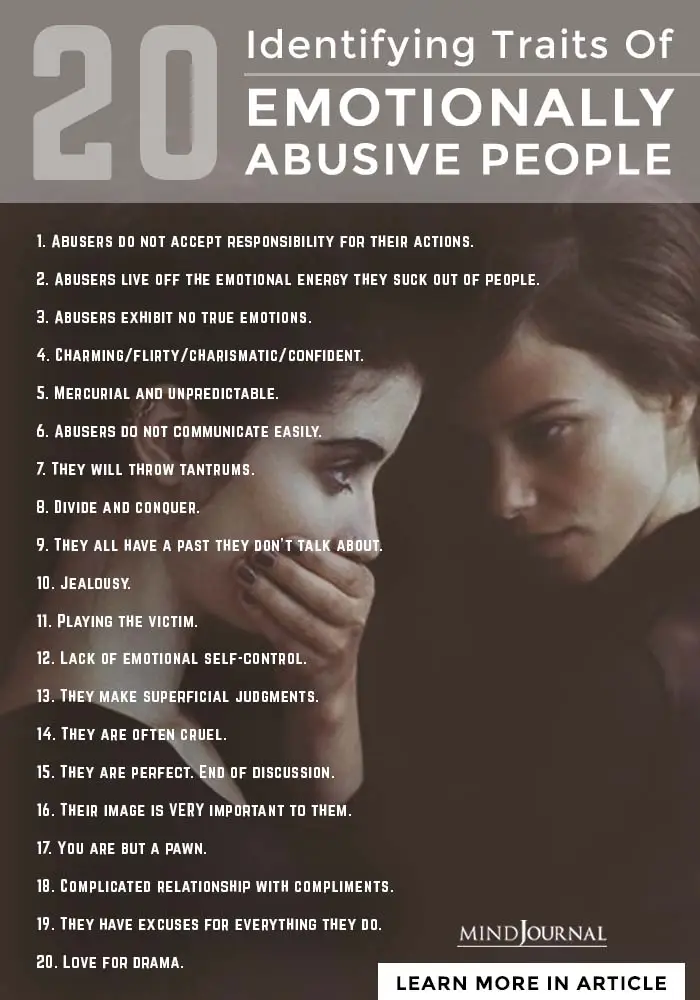
1) Abusers do not accept responsibility for their actions.
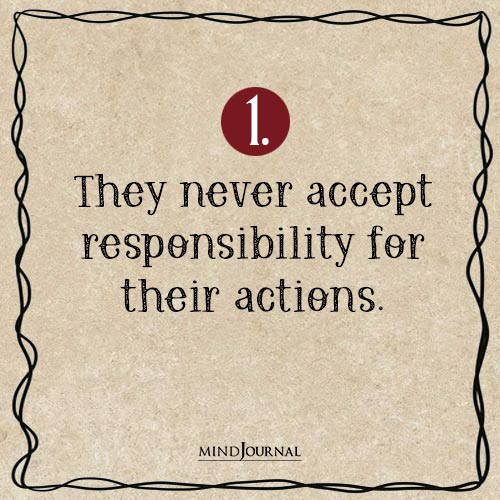
The look on the victim’s face at the face of their absolute denial is like a major dopamine shot for these individuals.
Stone-cold denial makes the victim feel (over time) more and more inadequate and makes them stop believing their own perceptions and realities no matter how true they are.
2) Abusers live off the emotional energy they suck out of people.
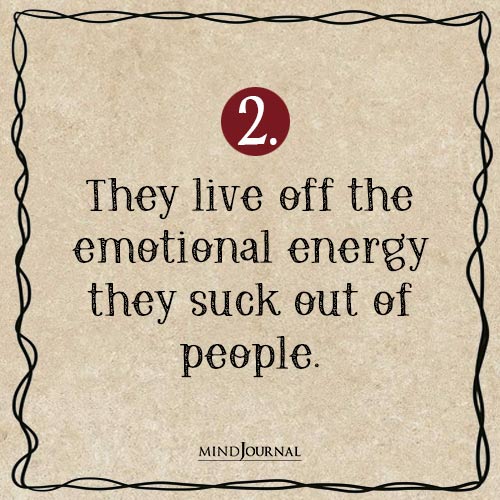
The fact that their presence agitates you to be on the edge and that their approval means a lot to you hence, makes the abuser feel higher and mightier than ever.
They enjoy the feeling of leaving one raw and wounded after criticizing one for the smallest of things, just because their approval might mean something. The fault in question might not even exist.
This leaves the abused more or less tired physically and emotionally.
3) Abusers exhibit no true emotions.
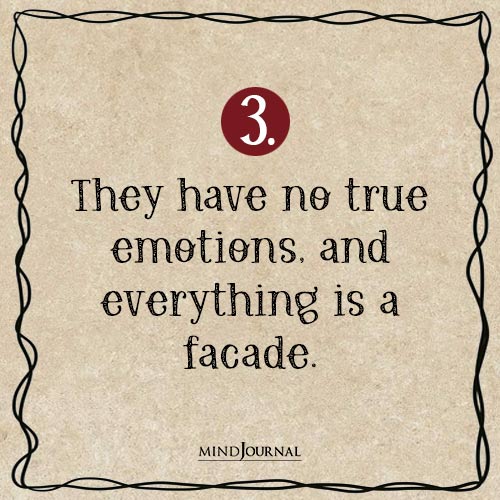
This is one of the major signs of emotionally abusive people.
The appearance of caring for the abused is but a façade for the abuser. It is a trap to make the abused feel a little at ease just for them to cut them down in a far crueler way.
Do not fall for these falsities.
Related: 20 Subtle Signs of Emotional Abuse
4) Charming/flirty/charismatic/confident.
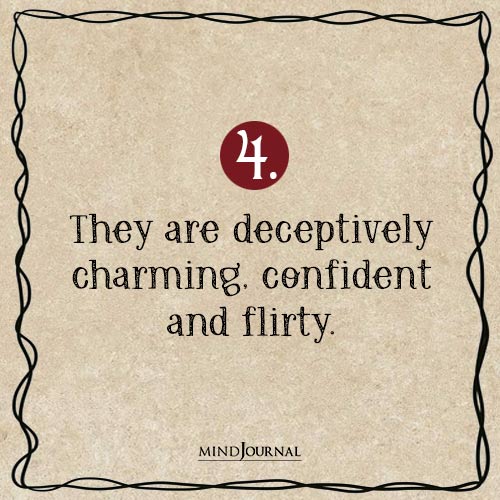
There will be a certain quality in these abusive individuals that makes them extremely attractive to emotionally vulnerable people. This can be their charm, them being very flirty or romantic or cheesy which makes them seem “cute”.
They might be very adept at leadership or at least it would appear that their peers appreciate their opinion or they might just be very confident: something you or the victim have never been.
It’s a moth to the flame situation, and this is one of the many things abusers do.
5) Mercurial and unpredictable.
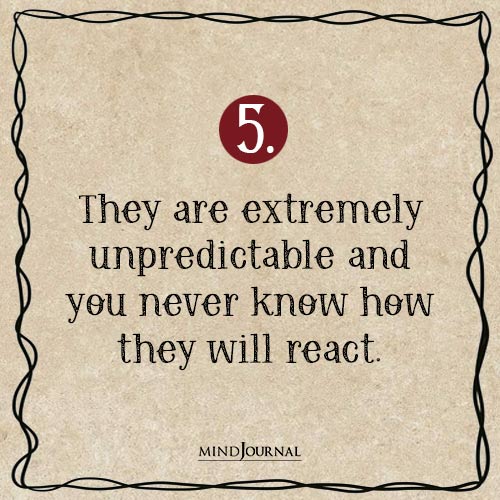
Abusers are very unpredictable: they can be as loving as Florence Nightingale (sorry for the extremely bad analogy but you get it) one minute and become Vlad the Impaler the next.
Sadly enough, it is a part of their charm: we all like things that are mysterious, exotic, and unknown; the Byronic anti-hero, the mysterious wardrobe to Narnia, or the exotic Orient of colors, aromas and sounds unknown.
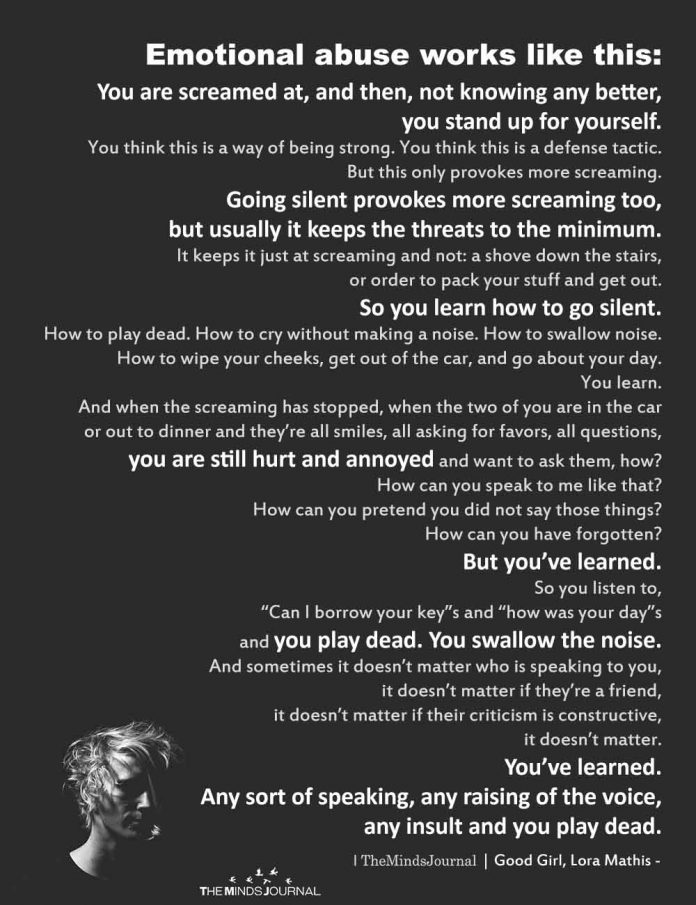
6) Abusers do not communicate easily.
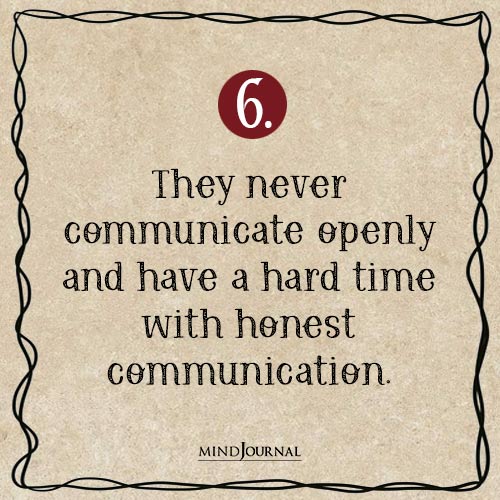
Ever heard of the dark brooding hero?
Yes, exactly.
When the abuser does not communicate, he is luring you with his silence to further probe into his charm while he reels the web in.
This is one of the easiest ways to recognize abuse and is one of the most prominent toxic traits of emotionally abusive people. Besides, even if they do talk, it will invariably be an epic saga of their exploits no matter how puny they are.
7) They will throw tantrums.
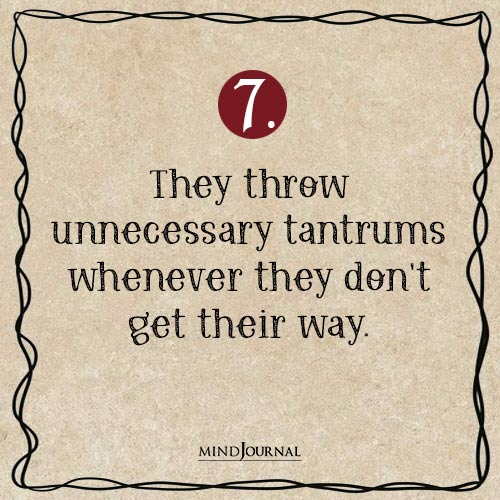
The abuser will feel entitled enough to pester you by throwing unnecessary tantrums; if you retaliate, you will be branded unloving and inconsiderate.
By enabling such shows of immaturity, you will just fall deeper into the murk of abuse.
Related: Six Kinds of Emotional Abuse by Narcissistic Parents
8) Divide and conquer.
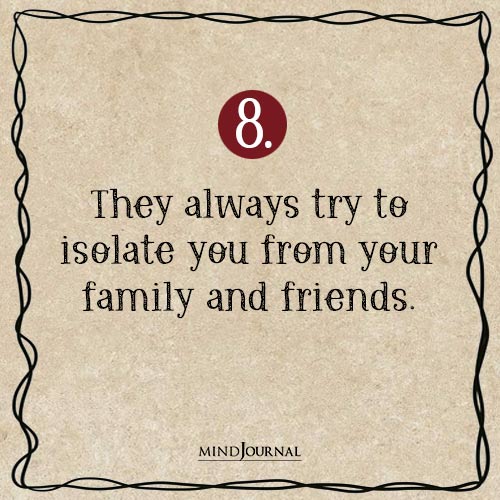
This is one of the defining characteristics of emotionally abusive people.
Abusers will isolate you from your emotional supports (friends, family, or peers) because they want you to be dependent on them and they don’t want their game to be exposed.
9) They all have a past they don’t talk about.
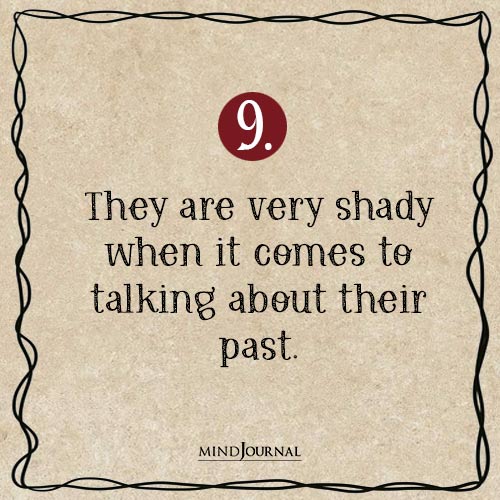
But an emotionally abusive person will make you think they were the victims back then and hence the silence because “it brings back the memories”.
10) Jealousy.
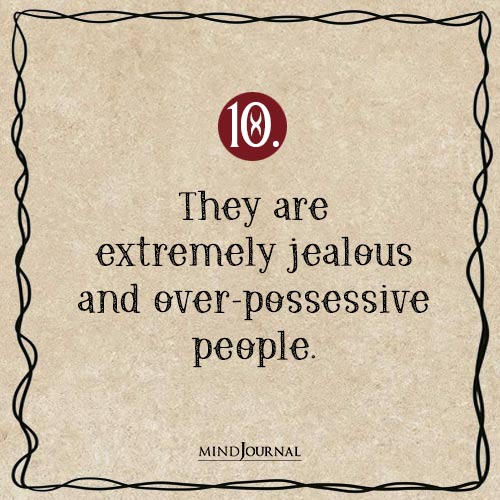
This is part of the dividing and ruling policy. They will drive you to a point where you stop socializing just to end the conflicts at home with them.
11) Playing the victim.
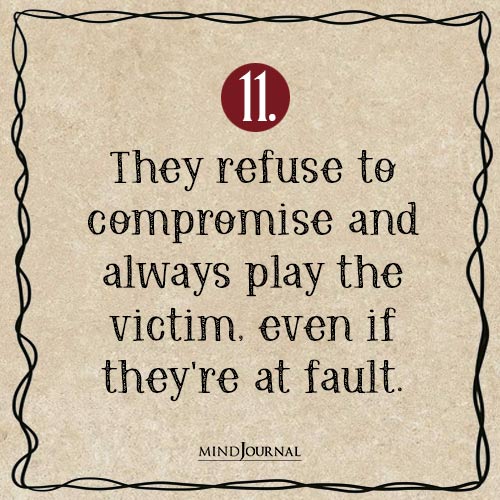
An extension of point 9, the abuser is ALWAYS the victim. They never get what they want (even though they do) and they are always the ones who compromise (even though they absolutely don’t).
Rings bells, doesn’t it?
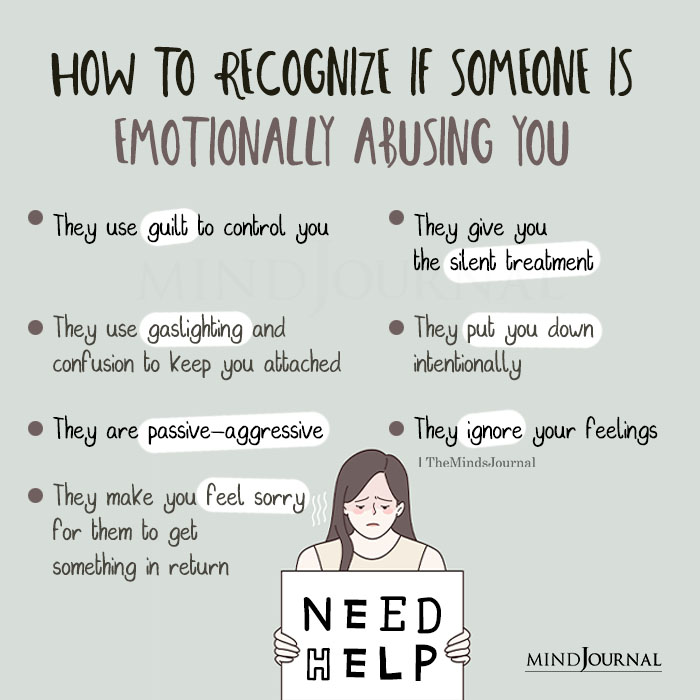
12) Lack of emotional self-control.
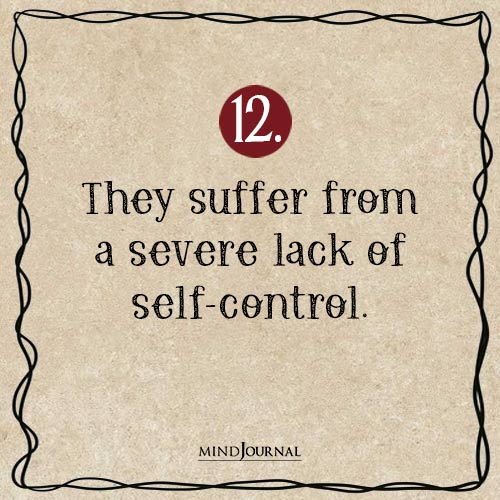
Never try and have a debate with these people if you aren’t ideologically equal because as soon as you take a step out of the bubble of submissiveness they WILL make you regret it. Be certain of that.
It can be in the form of shouting, crying, throwing tantrums, etc, but it WILL happen.
13) They make superficial judgments.
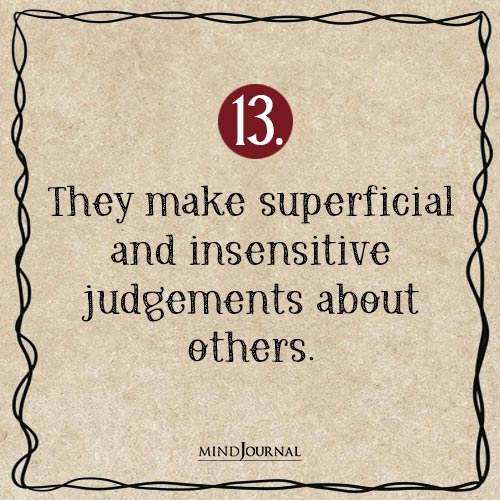
Just to maintain their position as high, mighty, and immaculate.
14) They are often cruel.
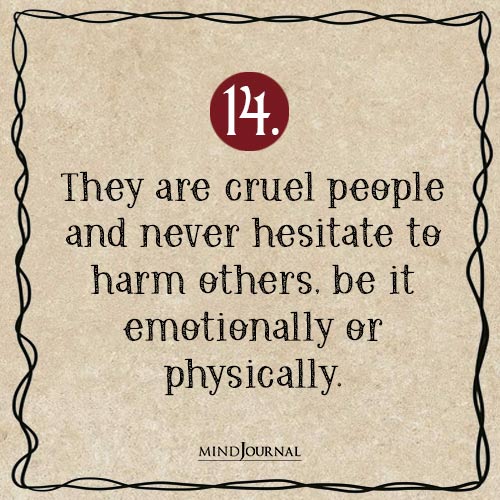
Again, they will go to immense lengths to keep the gulf between you and them tangible.
This can range from snide remarks in social surroundings to plain physical or even in the worst cases, sexual abuse.
Related: What Is Emotional Abuse? How To Know if You are Being Abused
15) They are perfect. End of discussion.

Any possibility of blemishing their visages and abusive individuals will lash out till their immaculate, untouchable, and superior images are restored.
16) Their image is VERY important to them.
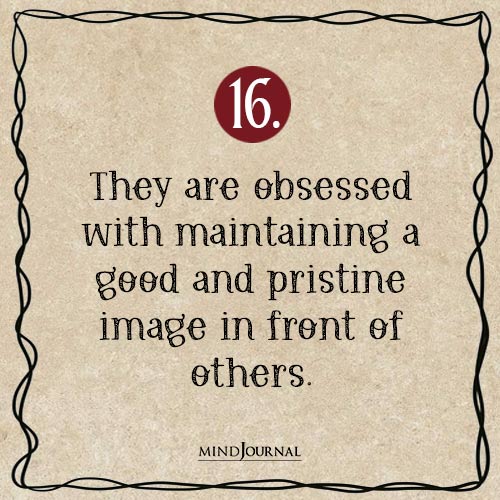
No matter what, when it comes to common society, you are inferior to them. No matter what you achieve, there is always something wrong with you and they will point it out.
The simple reason behind it: you being flawed, makes them look better in front of your friends.
17) You are but a pawn.
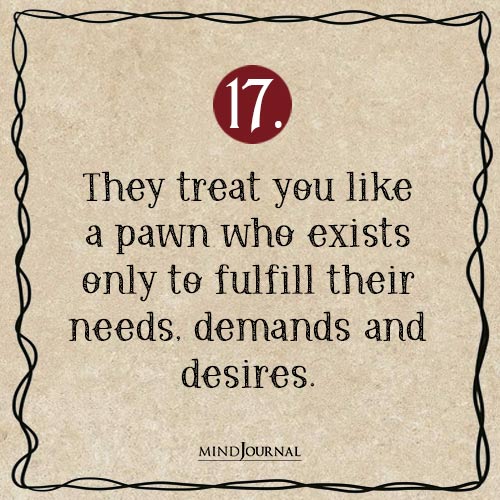
To fulfill their needs and wants. To be at their beck and call.
To worship them with your soul and emotional energy, till you die inside thousand times even before you actually die.
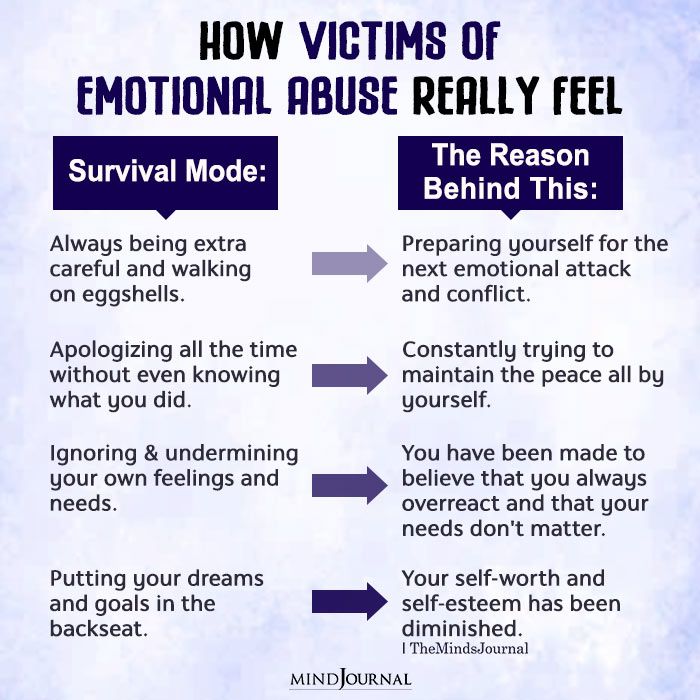
18) Complicated relationship with compliments.
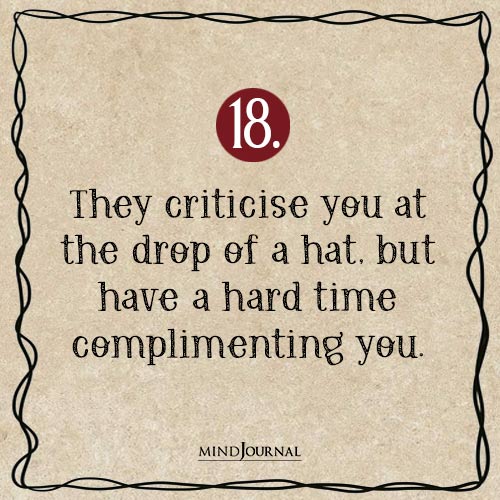
If anyone except them receives accolades, they would be sure to point out some flaws that would make you feel that you really don’t deserve it.
If it’s them, however, keep the lines flowing.
19) They have excuses for everything they do.
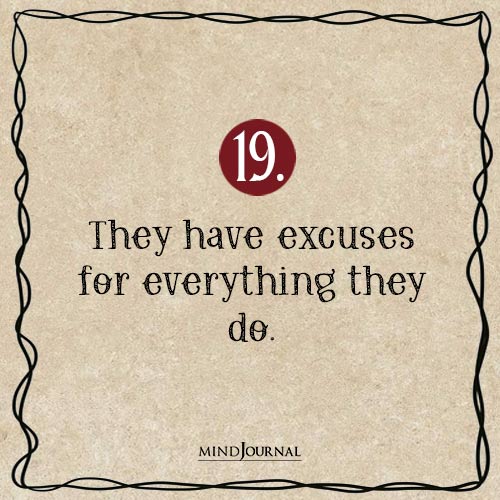
They always do or say things “for a reason.”
You deserve the murk they throw you in “because you had it coming.” Not because they are bad human beings.
Related: Abuse Knows No Gender: Real-Life Examples Of How Women Abuse Men
20) Love for drama.
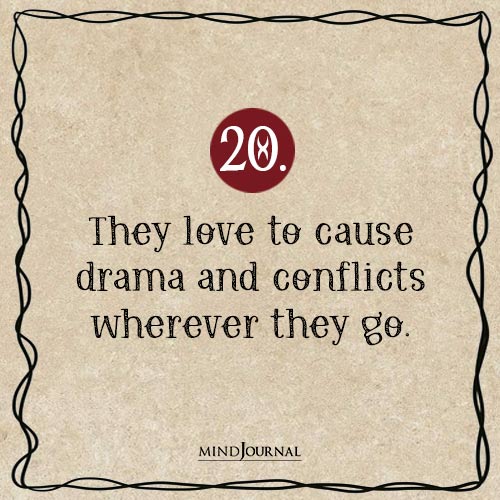
Abusers and narcissists love to see the conflicts they cause and revel in them because well it’s a lot of hullabaloos over something they did; in simpler terms, it makes them the nucleus of attention.
So recognize the signs, and cut these people off from your life while there is time left. Emotionally abusive people can suck the life out of you, and leave you as a shell of the person you once were. Get rid of them from your life, then only you’ll feel happy.
Cheers.
Want to know more about the signs of emotionally abusive people? Check this video out below!
The Minds Journal Articles Volume -1 is Copyright Protected vide Regd.# L-103222/2021
Frequently Asked Questions (FAQs)
Can emotionally abusive people change?
In some cases, yes. Sometimes, emotionally abusive people have the potential to change their ways, if they genuinely regret their behavior and want to make things right with the person they love.
How to deal with emotionally abusive people?
Some of the most effective things you can do to deal with emotionally abusive people are to draw strict personal boundaries, know the signs of emotional abuse, try not to retaliate every time they push you, reach out for support, and finally leave the relationship if things get too toxic and dangerous.
Can someone be emotionally abusive without realizing?
Sometimes emotional abuse can be unintentional. If someone is being unintentionally emotionally abusive, it’s probably because they’re simply enacting toxic behaviors they’ve grown up seeing their parents & other family members enact.
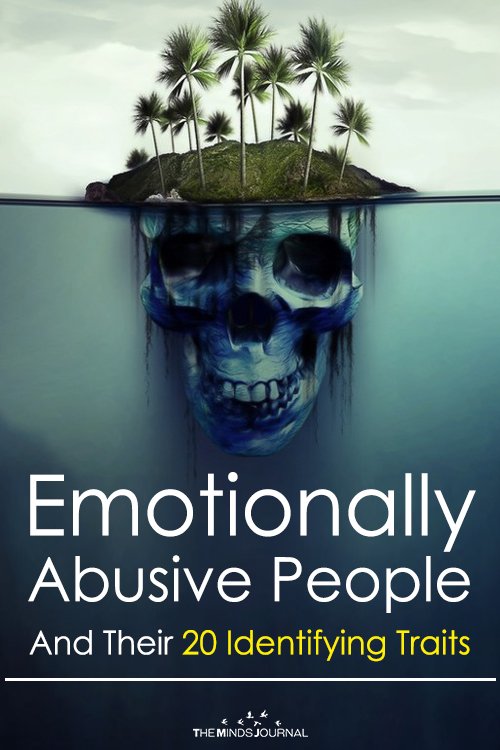
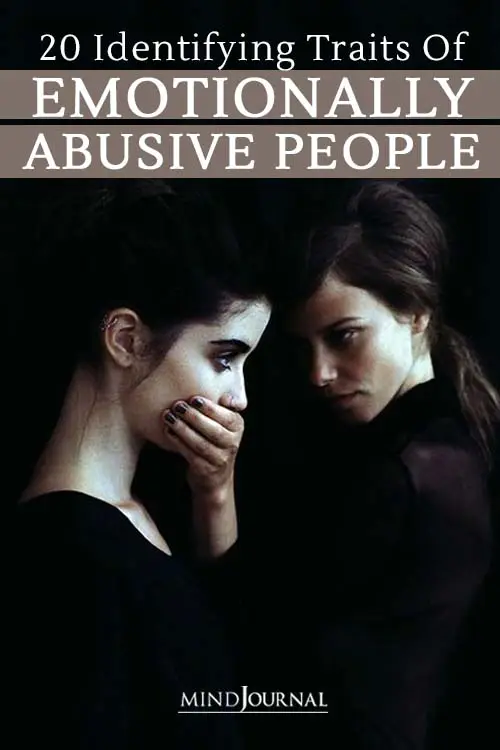
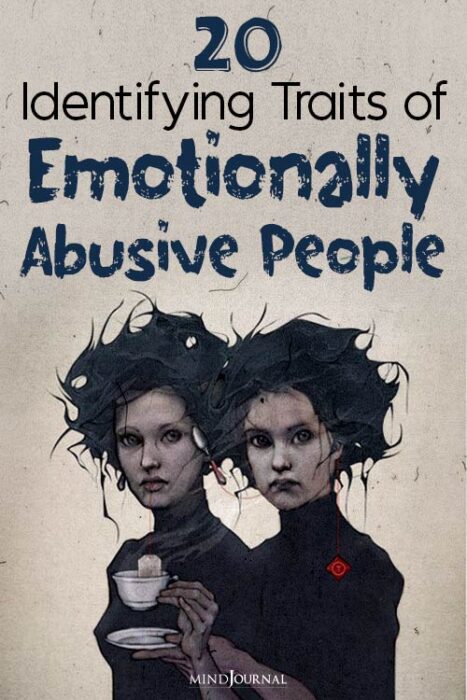
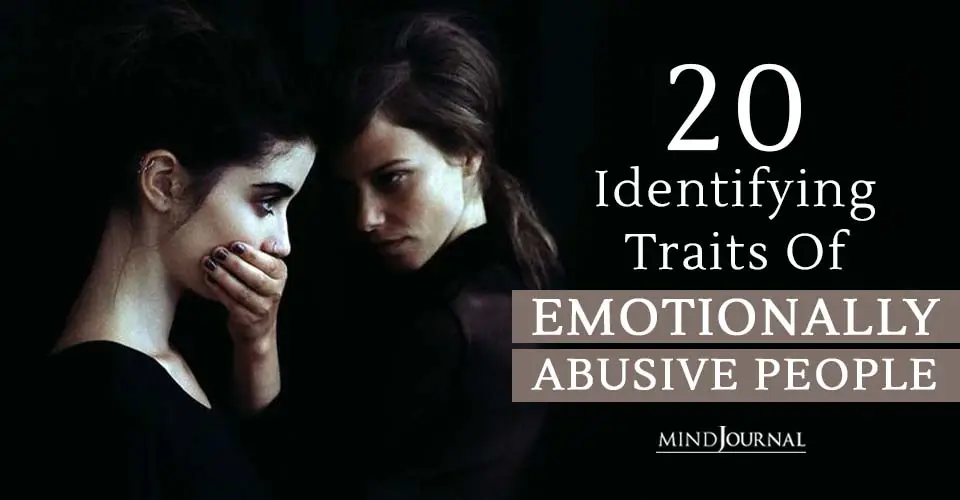







Leave a Reply
You must be logged in to post a comment.